Covid lockdown in Wales: 'Time to end all restrictions'
- Published
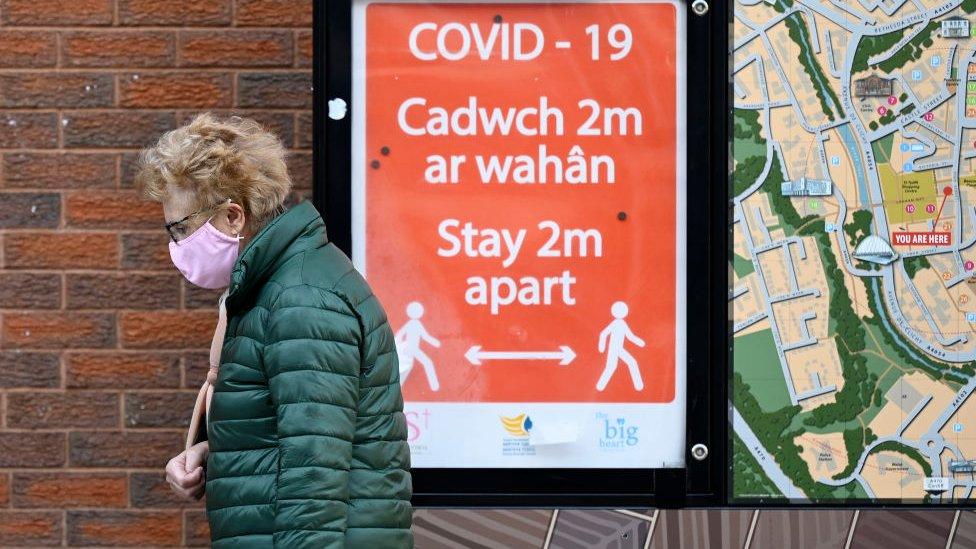
The link between cases, hospitalisations and deaths had "definitely" been broken, Prof John Watkins says
Wales should now lift all Covid restrictions, a leading expert on infectious diseases has said.
The success of vaccinations and immunity levels meant it was safe to end lockdown, said Welsh and UK government advisor Prof John Watkins.
He said the link between cases, hospitalisations and deaths had "definitely" been broken.
Senior Welsh officials have said while the link is weaker, it has not been eradicated.
There are also concerns young people are not coming forward for vaccines as the rollout continues.
On Monday Boris Johnson announced almost all legal Covid-19 restrictions would end in England on 19 July, meaning those across the border will no longer be required by law to social distance or wear face masks.
Welsh ministers will announce any changes to Covid rules in Wales at their next review on Wednesday.
Dr Ami Jones, a critical care consultant at the Aneurin Bevan health board, said the changes in England were a "slap in the face for the whole population" as case rates continued to rise.
"I think most healthcare providers will not be throwing their masks in the bin, and going to crowded places… because we know what's coming," she said.
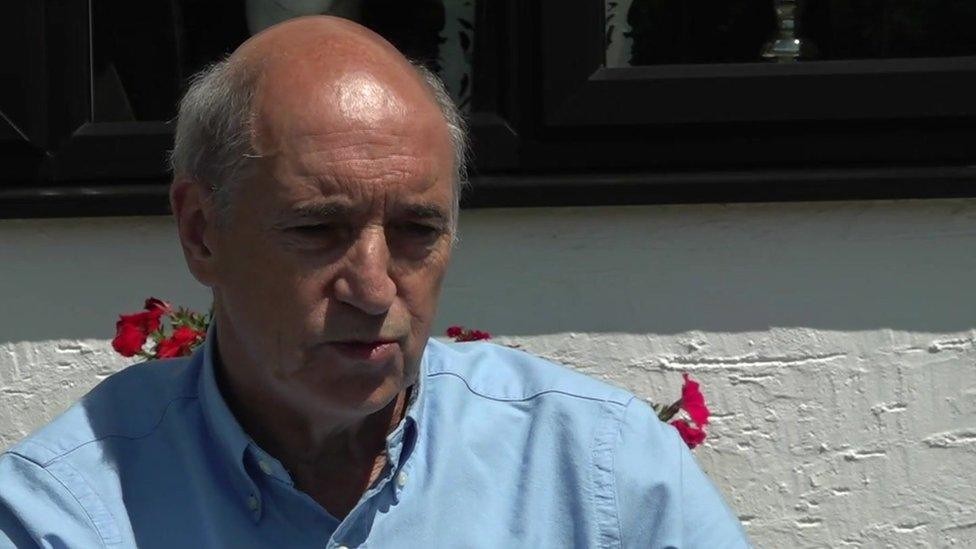
Prof John Watkins said Wales was at a "reasonably good place to start opening up society"
Latest data, external from Public Health Wales shows the Covid case rate in Wales is 136.1 per 100,000 people - below other UK nations and all English regions.
On Monday, 1,190 new cases, external were announced, taking the total since the start of the pandemic to 225,691.
The number of people admitted to hospital with Covid remains close to record low levels, with the number of those in critical care also very low.
Consultant epidemiologist Prof Watkins, of Cardiff University, said vaccinations had been extremely effective in preventing serious illness, including against the Delta variant.
"We've got a considerable amount of the adult population now vaccinated and we know that vaccination reduces transmission as well as reduces adverse events," he said.
"And we know that in young people, where the bulk of infections are occurring at the moment, that actually they have got far less chances of adverse events, so I think we're at a reasonably good place to start opening up society.
Despite a recent rise in the number of cases, Prof Watkins said the latest health modelling suggested Wales was following a "positive trajectory".
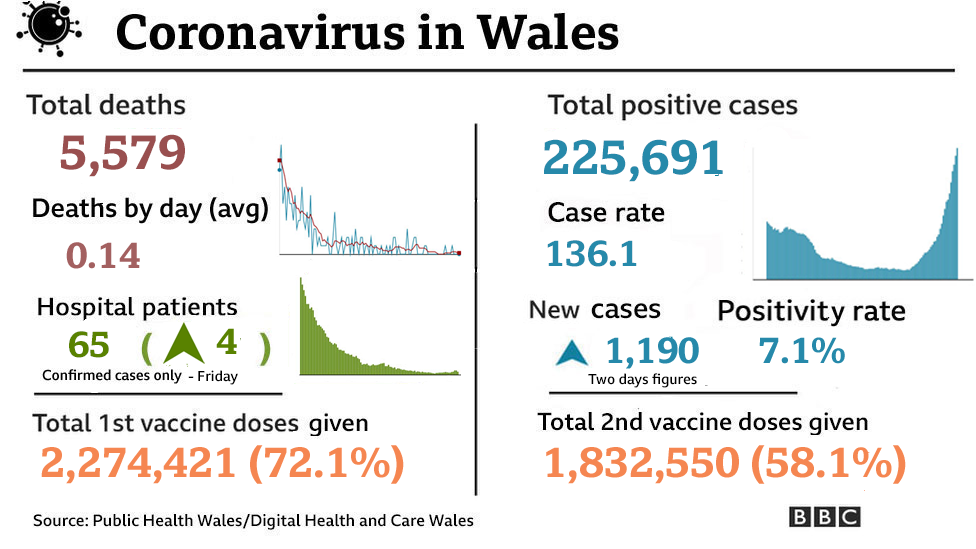

"It's always going to be a balance of risk, and I think we've protected the most vulnerable to this virus, and we've got good evidence that a significant proportion of the UK population has been exposed to the virus, or has antibodies to the virus... so actually we have a population that is reasonably well protected," he said.
He added: "There comes a point where we have to start living with the viral transmission, and I think now is the time to do that."
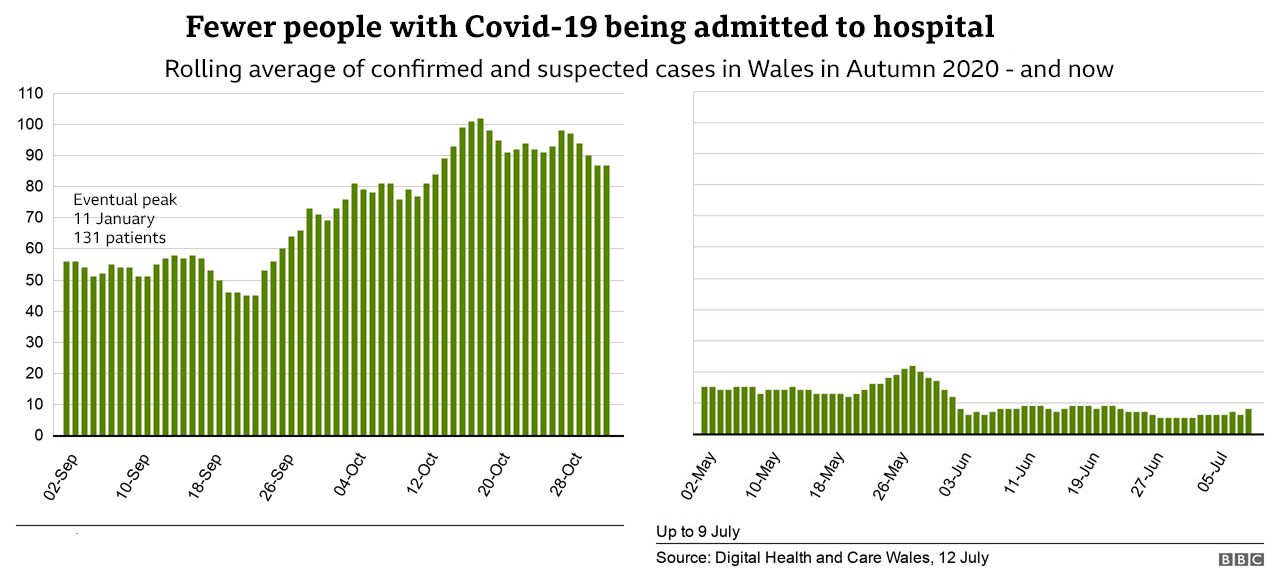

Prof Watkins added: "In Wales, the numbers of deaths from people testing positive for the last 28 days have been no more than one or two a day, and many days without any [deaths] at all. Our hospitals are in a good place in terms of cases.
"Over the next couple of weeks, as we start to open up and this current surge of cases passes through, we'll see whether we're on the right course - but all the data suggests that we are."
Almost 92% of adults in Wales - including two-thirds of young people under 25 - now have antibodies to help protect them against Covid-19, the Office for National Statistics (ONS) estimates.
Dr Watkins said the concept of herd immunity should not be discounted as a "dirty word", adding: "once you've got a certain level of protection within the population, the virus doesn't have very many places to go."
'It's going to spread like wildfire'
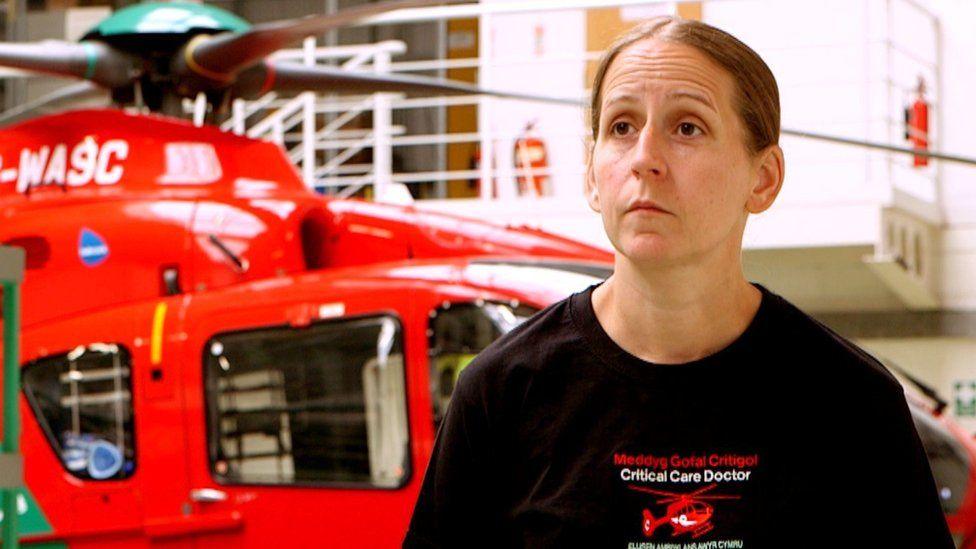
Dr Ami Jones said while she understood people's need to see friends and family, social distancing and face coverings should remain in place
Dr Jones said she feared what might happen if Welsh ministers did not act cautiously.
"I'm worried about how the next few weeks are going to go, if the restrictions do lift… it's going to be a Delta Covid fiesta, it's going to spread like wildfire," she said.
"Who knows what that's going to mean for the hospitals, which ultimately is going to impact on hundreds of thousands of people lives."
Welsh government Welsh Health Minister Eluned Morgan has already said the country is going to have to "learn to live with" coronavirus as ministers consider their next move.
Senior advisers did not say how ministers may relax decide to relax restrictions when they took a Welsh government Covid briefing on Monday.
But they reiterated their view that the link between cases and serious illness was weaker, but had not gone completely.
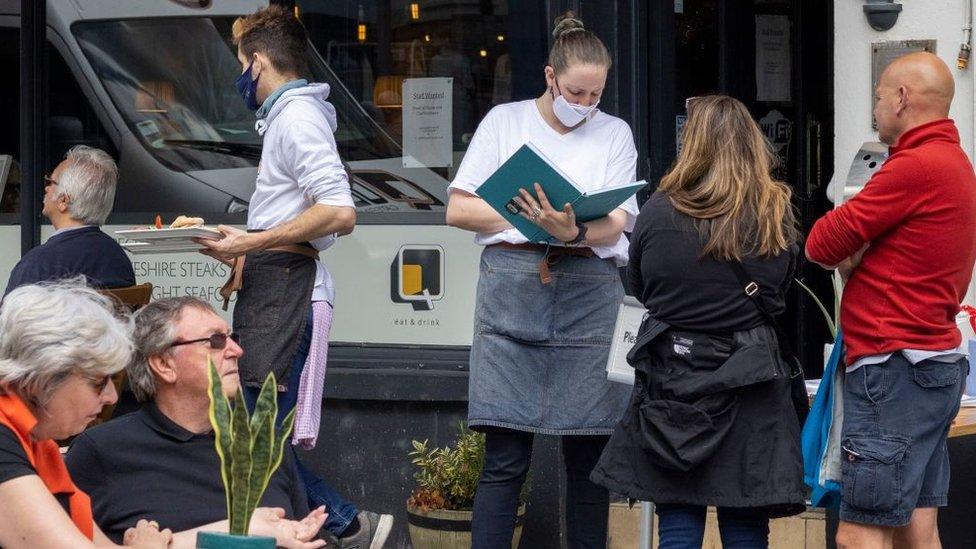
The next review of lockdown rules in Wales is due on 15 July
Deputy chief medical officer for vaccines Dr Gill Richardson said: "We can confidently say that vaccines have weakened the link between infections, serious illness and hospitalisations and deaths.
"But they have not broken the link."
Dr Richardson told the press conference hospital admissions were not at the same levels as they were during the winter.
But she added: "We can expect hospital admissions to rise, especially among young people, or the unvaccinated and those who haven't completed their course."
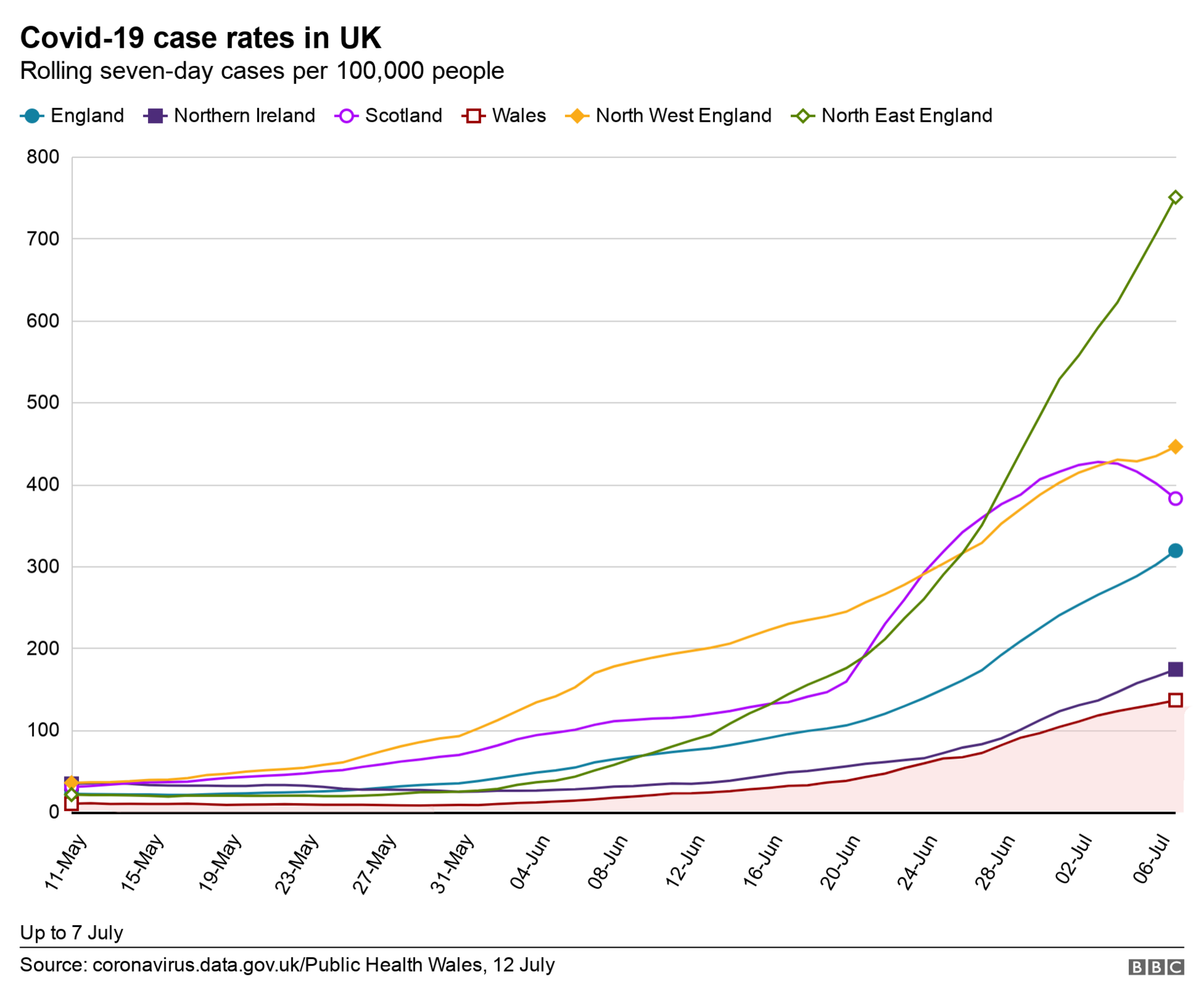
Chief medical officer Dr Frank Atherton said he did not know if there would ever be a point where the link between cases and serious illness was "completely broken".
He said cases were doubling approximately every six-and-a-half days, with every person who is infected "going on to infect almost another two people".
He added that in this third wave of the epidemic, there were far fewer infections in the older age groups.
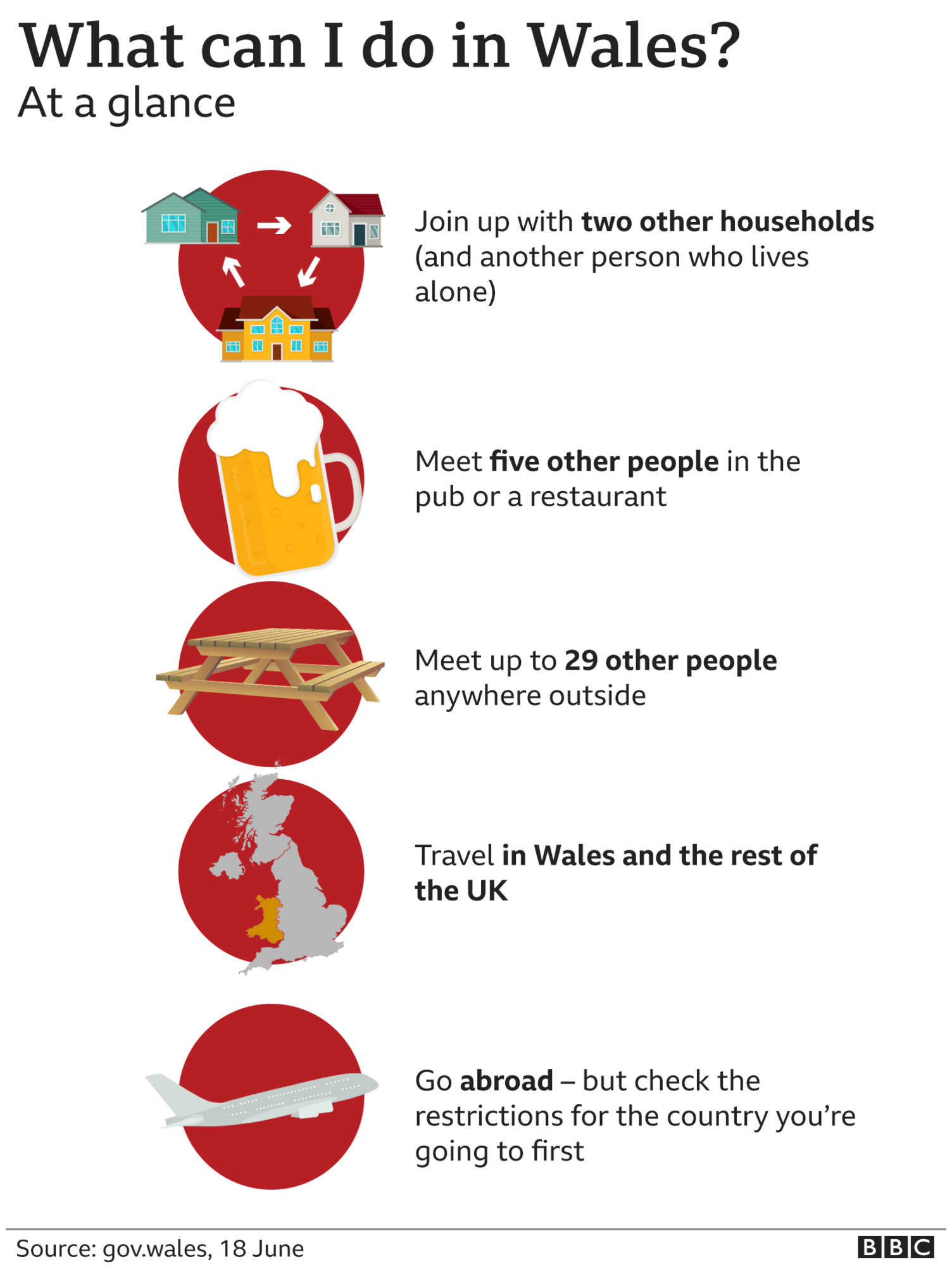
Dr Richardson was also concerned that some younger adults were not coming forward for vaccination.
For those aged 18 to 39, 26% have not yet taken up a first dose - nearly 234,500 people.
"One in four in this age group are still not protected," Dr Richardson said.
"These young adults are vulnerable to infection, serious illness and life-changing long Covid, as well as loss of earnings if they have to self-isolate as cases of the Delta variant are increasing in this age group."
She added: "Health boards are running walk-in Pfizer clinics to make it as easy as possible for this age group to get vaccinated."
- Published9 July 2021
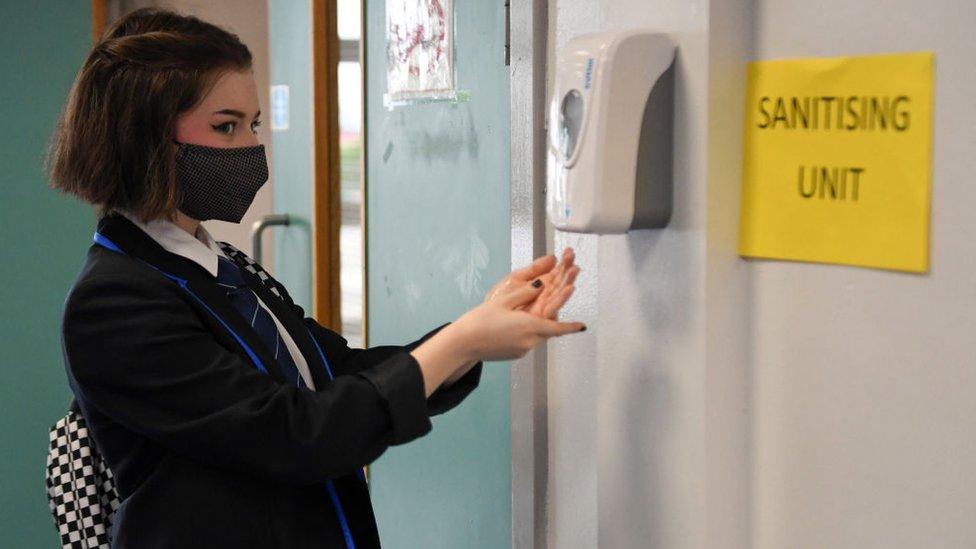
- Published4 July 2022
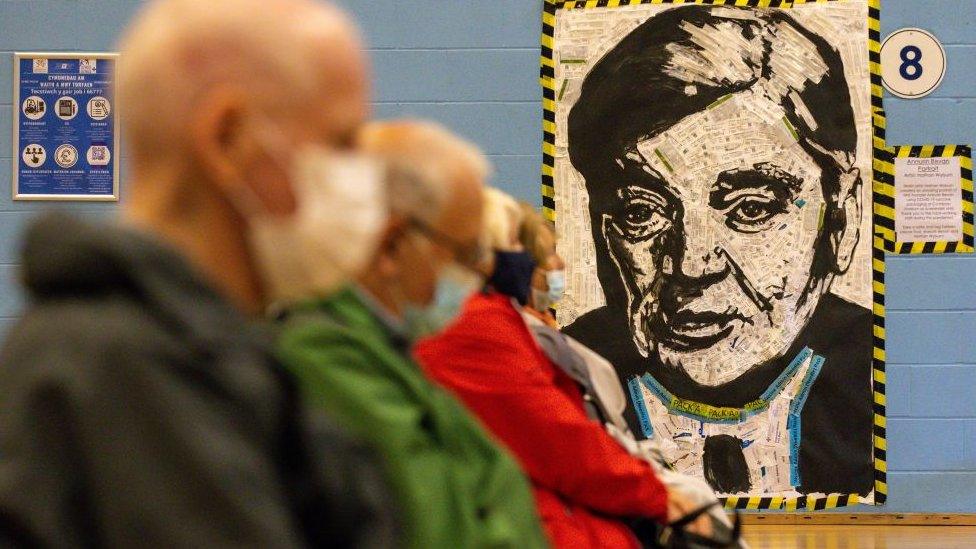
- Published7 July 2021
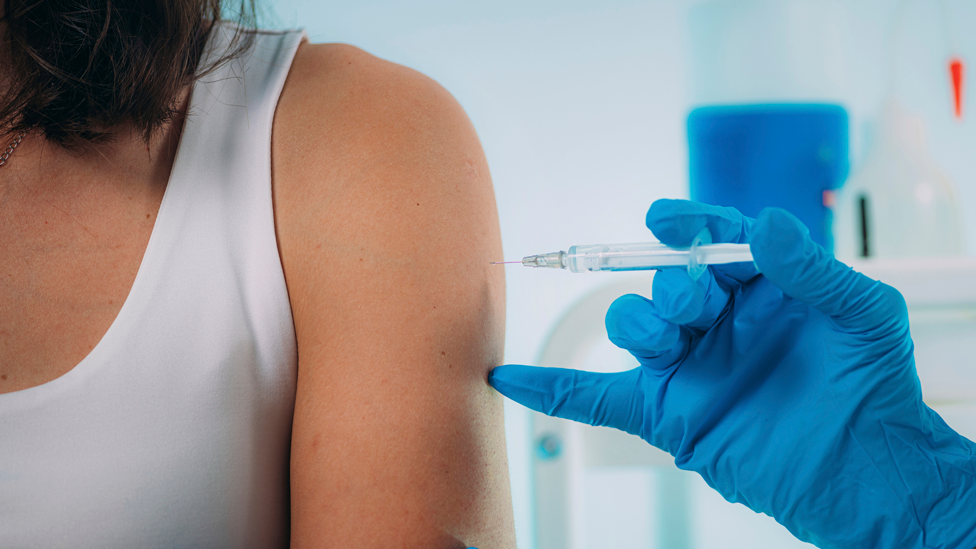
- Published8 July 2021
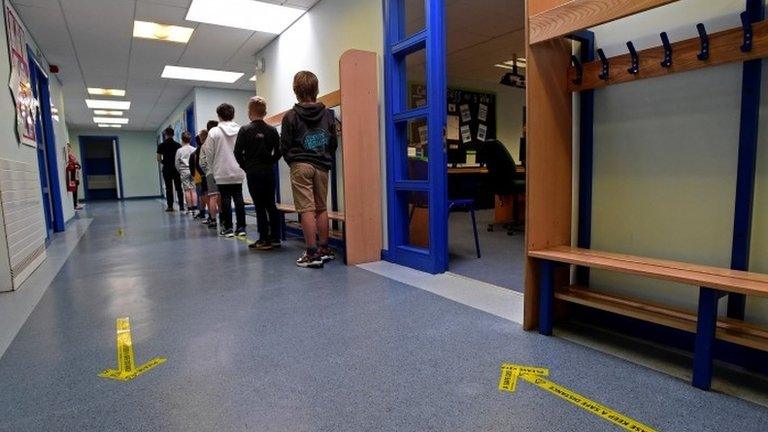
- Published5 July 2021
